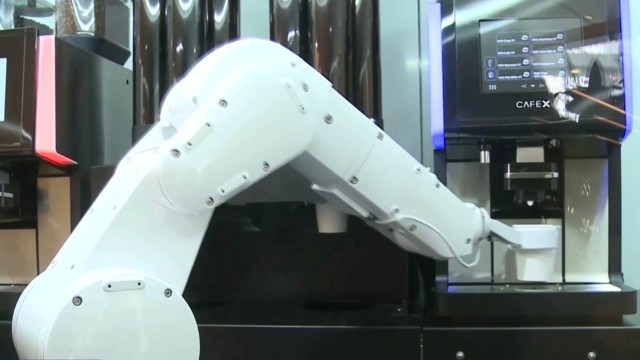The World Economic Forum’s Global Summit on Innovation, Science & Technology continues in Dalian, China.
And a big topic is what’s being called the ‘Fourth Industrial Revolution’—the fusing of artificial intelligence, automation and Internet of Things devices.
As CGTN’s Mark Niu reports from Silicon Valley, the U.S. plays an integral role in shaping both the technologies and the impact on society.
3D printers can produce parts and products—without a factory assembly line. Self-driving vehicles arrive on demand, and can avoid accidents. The latest technologies are fusing automation with intelligence to service every human need. It’s all part of the Fourth Industrial Revolution.
“What’s really interesting now is we’re seeing technologies like artificial intelligence and machine learning being applied to this and really driving this Fourth Industrial Revolution in a way that I think what was not initially anticipated,” Bob O’Donnell, Chief Analyst of TECHnalysis Research said.
REX Think Tank Futurist Jerry Michalski explains why places like Silicon Valley have an edge.
“The U.S. has the particular advantage that it has a very fluid, powerful, very wealthy venture capital market that is really excited about all these technologies,” Michalski said. “And it’s pouring a lot of money into these ventures. Some of which they know will fail, but some of these which will very likely succeed.”
Silicon Valley has the largest U.S. community of venture capitalists and is a place brimming with ideas. And just down the road from Google, Zume Pizza today unveiled its Doughbot. It automatically turns dough into a perfect crust five times faster than a year ago— when it was a “human’s” job to do that.
Now the Doughbot sprays the sauce, and another robot puts the pie into the oven. Do humans need to be here at all—except to eat pizza?
“A lot of what’s going to happen is the elimination of work all over the place and being magnified on economic forces of businesses to get rid of full time employees, etc, etc,” said Michalski. “People are really cranky, we need retirement accts, we don’t like our shifts, we get into fights with our colleagues. Software doesn’t do that.”
“Some of this AI opportunity is actually going to impact white collar jobs, said O’Donnell. “You can scan X-rays and find more accurately tumors or other problems. That’s obviously very much been a human-focused endeavor. In the financial world, doing risk analysis around certain types of investments. Again, there can be a lot of that done in an automated fashion.”
Scott Schober talks about the Fourth Industrial Revolution, future of AI
CGTN’s Susan Roberts spoke with Scott Schober, president and CEO of Berkeley Vari-tronics Systems, on the Fourth Industrial Revolution and future of AI.
 CGTN America
CGTN America

